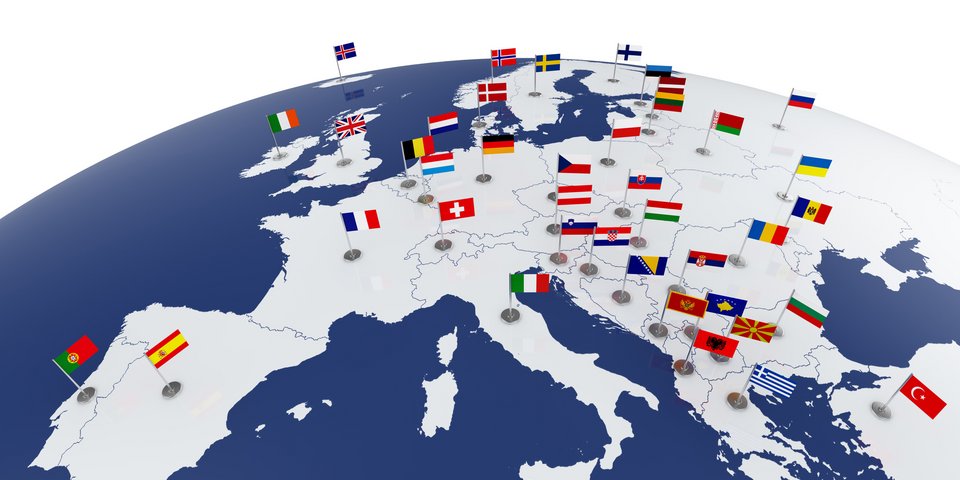 Denys Rudyi - Fotolia
Denys Rudyi - FotoliaDigital Health: eHealth Week 2017
Stakeholders from all over the world discuss current digital health topics. The issue of cost reimbursement becoming increasingly predominant.
MS – 05/2017
In May this year, it was time again for leading health policy makers from the EU Member States to gather in Malta to discuss the best way to use information and communication technologies (ICT) to benefit individuals, patients and society as a whole. The overarching theme of this year’s annual event was ‘Data for Health: the key to personalised sustainable care’. It was organised by the Maltese Presidency and the European Commission.
Marriage of digital and public health?
The most tweeted quote of the event came from WHO Director Zsuzsanna Jakab in her opening keynote when she stated: ‘We need a beautiful marriage of eHealth and public health’. However, she threw a different light on the ‘eHealth hype’. eHealth should not be seen as a solution for all the problems in the European health system. Rather, it is the marriage of conventional public healthcare with new technical possibilities that will create added value for patients.
In numerous discussion forums, participants called for European patients to be given access to their personal health data. Whereas citizens have online access to their banking data any time they want, basic health data cannot be accessed. It is important in this context to not only pay attention to the digitalisation of health services but also to the digitalisation of health competences. To avoid a division in society it is equally important to strengthen digital health literacy.
European Representation of the German Social Insurance gives presentation from the German health care fund’s perspective
For the first time, the European Representation of the German Social Insurance was at eHealth Week and gave a presentation which looked at digital healthcare from the perspective of the German health care funds. To have successful digital care, cooperation between market participants has to start early so that together they can meet product requirements and carry out the necessary benefit assessments.
While discussions in Brussels on digital health have tended to focus on regulatory framework conditions, it is cost reimbursements that are increasingly becoming important. The Commission and many other stakeholders argue that the appeal of national systems and the first health market for eHealth solutions will decline without an appropriately quick decision on reimbursement. Due to the differences in the healthcare systems and the fact that decisions on reimbursement lie within the competences of the Member States, there was a very good exchange of experiences. Despite all the differences, it was agreed that new digital healthcare and long-term care services require new reimbursement models or ‘new business models’.
High-level talks with the Member States
In response to the question of who is responsible for driving digitalisation in the EU, Health Commissioner Andriukaitis put the ball back in the court of the Member States. Without political commitment from the Member States, Europe would not be able to continue the technological advancement of healthcare. Several representatives stressed that the time for action plans and pilot projects was over. Digital health needs to finally be put into practice.
In addition to the public events, representatives from the national health ministries were invited to high-level meetings to discuss the European digitalisation strategy in a closed group. One of the most important topics of conversation in Malta was the establishment of European eHealth infrastructures. As part of the Connecting Europe Facility (CEF) funding initiative, interested Member States are being provided with support to set up Digital Service Infrastructures (DSI) in health by 2020. Sixteen Member States, including Germany, are working together to enable the cross-border exchange of electronic patient files and prescriptions. Estonia, Croatia and Finland will be among the first countries to start exchanging electronic health services across borders in 2018.
Estonia’s Declaration: ‘Digital Health Society’
On 1 July 2017, Estonia takes over the presidency of the EU Council. Estonia is not only the main travel destination for various study trips, it is also keen to highlight the work it is doing to the EU. During eHealth Week, a select group of interested parties was presented with Estonia’s draft declaration for a “Digital Health Society”. The paper talks about the opportunities and challenges of strengthening health through digitalisation. Those invited, including the European Representation of the German Social Insurance, have the opportunity to comment on the draft. The declaration will be presented at the Estonian High Level eHealth Conference in Tallinn in September 2017.
What next?
Traditionally, eHealth Week is hosted by the country presiding over the EU Council in the first half of each year. As a result of Brexit, the UK’s presidency (originally planned for the second half of 2017) will now be skipped. The EU States have decided to move forward the countries that are scheduled for the presidency up until 2020. In the first half of 2018, Bulgaria will take on the rescheduled presidency of the EU Council. However, Bulgaria seems to be thinking about foregoing the organisation of eHealth Week due to budgetary restraints. As such, the focus is now on Austria who will preside over the EU Council in the second half of 2018.
All of the eHealth Week presentations can be viewed by following this link.
